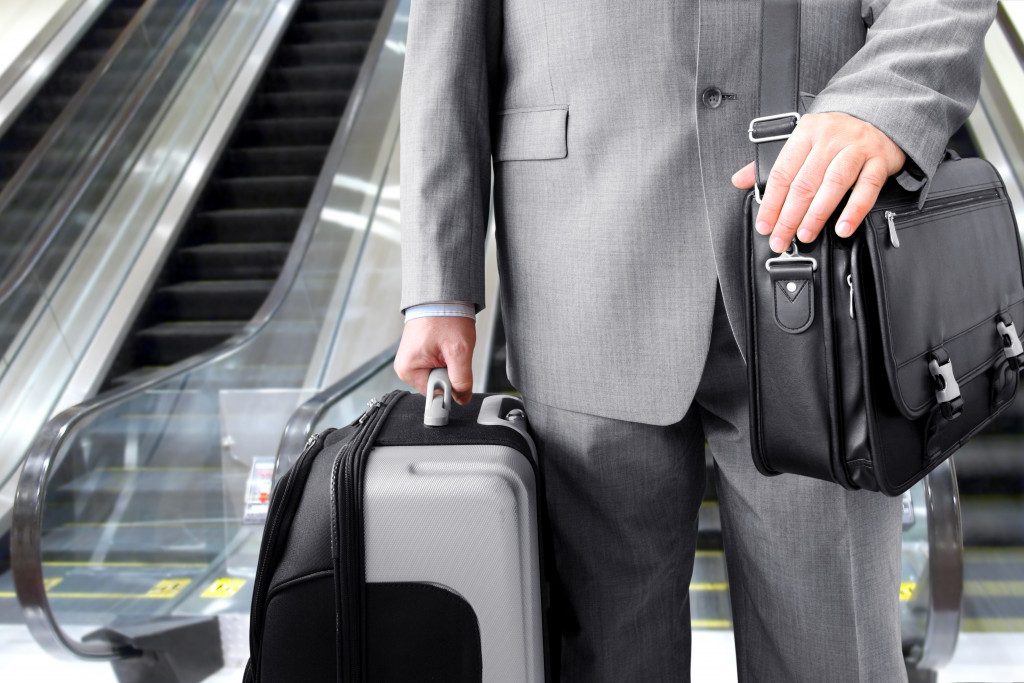Whether you’re a seasoned business traveler or taking your first work trip, there’s always room for improvement in making your journey as smooth and stress-free as possible. After all, the goal of business travel is to be productive, not to spend your time dealing with logistical headaches. You want to be able to hit the ground running as soon as you land without having to worry about missed flights, lost luggage, or other unforeseen problems.
Here are five tips to help you plan and execute a successful business trip:
1. Make a packing list and stick to it
One of the best ways to streamline your packing process is to create a packing list in advance and refer to it every time you travel. This will help you avoid overpacking (and paying pesky overweight baggage fees) by ensuring that you only pack the essentials.
Start by making a master packing list that includes everything you could possibly need for a business trip, then pare it down based on your specific trip. For example, if you’re traveling for a conference, you likely won’t need formalwear, but you will need your laptop and any presentation materials.
If possible, pack carry-on only to avoid lost luggage headaches. This may require investing in high-quality travel gear, like a durable carry-on suitcase and an extra portable charger, but avoiding luggage issues is worth it.
2. Choose the right lodging
When booking your hotel, read reviews ahead of time, so you have realistic expectations. In addition, look for properties that offer amenities that will make your stay more comfortable and productive, such as complimentary breakfast, Wi-Fi, and flexible check-out times.
Pro tip: Book a room on a high floor to minimize noise from street traffic below. This will help you get a good night’s sleep so you’re well-rested for your meetings and other business obligations. You can also request a quiet room when you book your reservation. Ask about the property’s cancellation policy as well, in case your plans change, and you need to make last-minute changes to your reservation
3. Build in buffer time
Anyone who’s ever traveled for business knows that delays are inevitable. Rather than cutting it close by scheduling meetings back-to-back, build in some buffer time between commitments in case of transportation delays or unexpected schedule changes. This will give you some wiggle room if your flight is delayed or traffic is heavier than expected en route to your meeting location.
You can also use this time to explore your new surroundings or get some work done if you have some unexpected free time. Try exploring sights on local transportation to see most of the city. Some people want to relax by doing something laid-back like fishing. You can rent or buy high-quality fishing rods to make your fishing experience more pleasant. But if you want something more active and adventurous, consider going for a hike in the local area.

4. Stay connected but not too connected
In today’s digital age, it’s easier than ever to stay connected while on the go. However, it’s important not to get too wrapped up in work while traveling and neglect your personal life back home. When possible, disconnect from work a few hours before bed each night so you can recharge and enjoy downtime without worrying about outstanding projects. This will help prevent burnout and ensure you’re rested and ready to be productive during meetings the next day.
You should also take advantage of downtime during your trip to catch up with friends and family back home. A quick call or video chat can help you stay connected and prevent homesickness. Use a service like Skype or FaceTime to make calls for free, or download a calling app like WhatsApp if you’re international.
5. Get some exercise
It can be tempting to just plop down on the hotel room couch after a long day of meetings but try to get some exercise in whenever possible – even if it’s just a quick walk around the block or 20 minutes on the hotel gym treadmill. Exercise helps reduce stress levels and improve focus, which is essential for being productive during a busy business trip.
Plus, spending time outdoors can help fight off jet lag. You’ll be more likely to stick to your workout routine if you pack light, comfortable workout clothes and sneakers that won’t take up too much space in your suitcase. And if you’re traveling internationally, don’t forget your power adapter so you can recharge your phone or laptop after a long day of exploring.
Planning is key to executing a successful and stress-free business trip. By following these simple tips, you can ensure your next work journey is as smooth as possible. Always remember to book a comfortable hotel room, give yourself some buffer time, stay connected but not too connected, and get some exercise in to help you stay focused and productive. With a little bit of preparation, you can make your next business trip a breeze.

